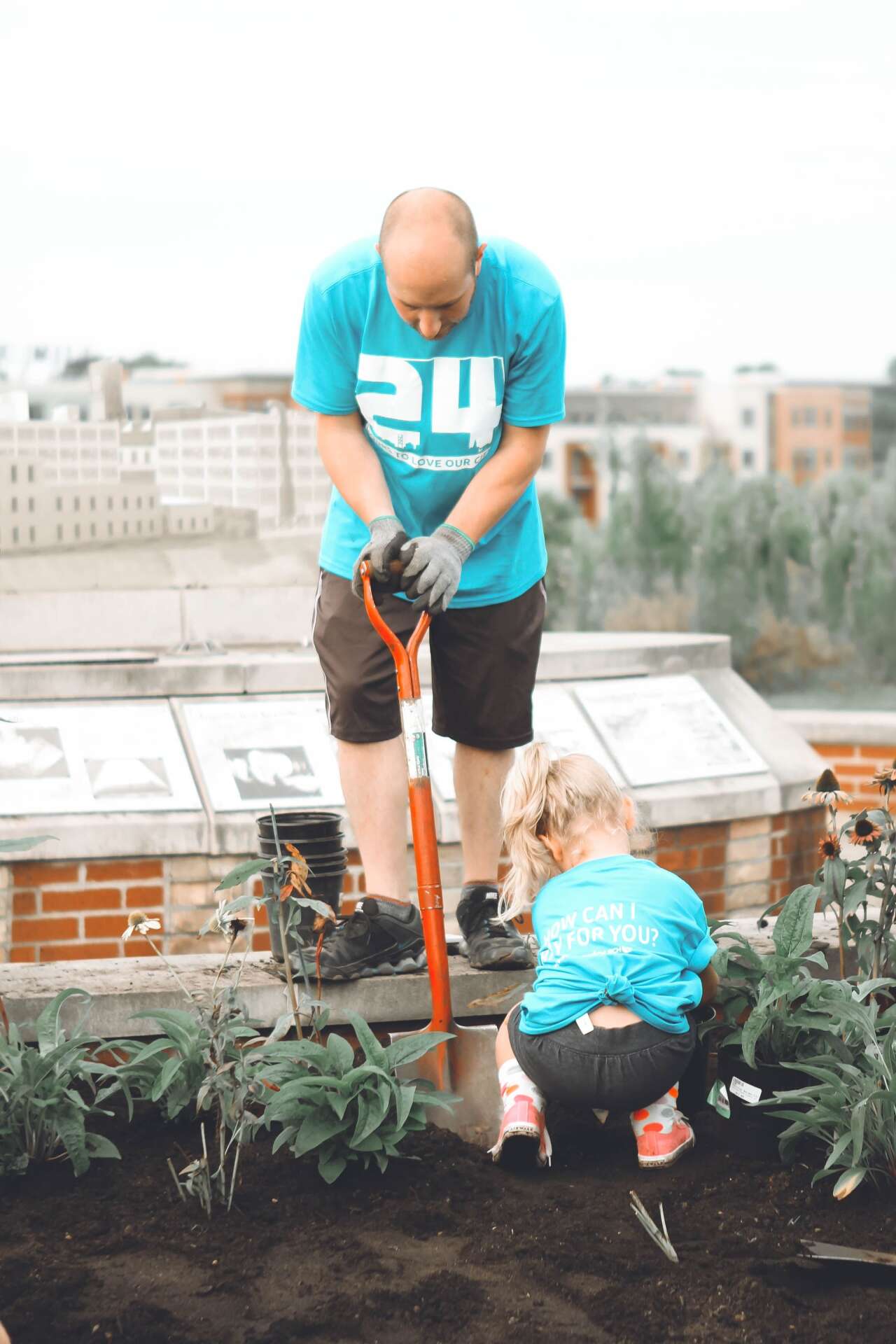- Resources
- Insider Tips
- The Ultimate Fall Homekeeping Checklist
The Ultimate Fall Homekeeping Checklist

As the leaves start to change, our thoughts turn to September, back to school, structure and schedules. This is also the time that the weather starts to change, and we migrate back indoors. It’s the perfect time to take some time to get your home ready for indoor living! The tasks will depend not only on the type of home you live in, (condo, single-family home, townhouse, etc.) but also where you live, and the temperatures associated with that environment. But everyone can benefit from checking at least some of these items off their list to stow away those summer tools and get ready for a warm, cozy Fall season.
Windows
There is nothing worse when snuggling inside on a chilly fall day than being hit by cold air drafts inside your cozy home. Make sure to give all the windows a good cleaning at the end of the summer. You might not be able to sit outside at this time, but you should at least be able to have a clear view of the beautiful outdoors! Once the windows are clean make sure to inspect your caulking. If it is cracked or crumbling repair and/or refresh it to make your home draft-free and energy-efficient.
Fireplaces
Gas fireplaces should be cleaned regularly to ensure that they run efficiently and beautifully. A gas professional can remove the glass, dust and clean the inside and glass area. After all, you want to be able to see those warm inviting flames. If you have a wood-burning fireplace you may want to hire a professional to clean the chimney to avoid any potential fire hazard. You should also think about your wood supply. Now is the time to order wood and have it all stacked and chopped. You’ll be happy to have done it while the weather holds!
Heating System/Air Filter
This is another area where professional servicing is generally in order. The heating system should be inspected, and air filters changed before you turn it on for the first time in the Fall.
Gutters
Gutters collect all kinds of dirt and debris and leaves. Make sure to clean them out before the fall to ensure you will have clean, efficient water drainage.
Roof
Before the rain, wind and snow hits you should always do a visual inspection of your roof. Are there any areas of concern? Missing tiles or worn areas? If so, best to have the roof looked at by a professional before a possible leak occurs!
Toilets
All toilets require occasional replacement of some seals to prevent leaking. At a minimum, you should check to make sure that no water is running down the back of the bowl. This indicates a worn seal and means that you are needlessly wasting precious water. They are generally very inexpensive and easy to replace.
Faucets
Your kitchen and bathroom faucets have aerators on the ends that not only improve the stream of water flow but also collect any dirt and debris in the waterline. They should be removed regularly and rinsed to ensure the best possible water flow.
Showers
In locations with hard water, you should be diligent about regularly cleaning any hard water mineral deposits. The best way to prevent damage to any fixture is to dry it completely after each use. If water pools, the water will evaporate and the minerals will remain. Over time these minerals build up and not only look bad but can cause real damage to faucets and fixtures. This is a great time to inspect your showers, faucets and other fixtures for mineral build-up.

Outdoor Furniture
Clean and pack away all outdoor furniture, barbeques, umbrellas and garden decorations. Leaving these items out through the fall and winter not only looks messy but it causes unnecessary wear. Glass tables can break under the weight and cold of snow and chair upholstery can fade and crack. It’s best to protect your investment by putting it all away, protected from the elements. (Note: if you have put solar lights in your garden you will want to bring them in as well. A season of freezing, wind and snow will more often than not cause damage. In most areas there isn’t enough light to power them during the winter months in any case).
Garbage and Recycle Bins
Over the summer garbage and recycling areas often collect dirt and debris. Give this area a thorough cleaning before the bad weather hits. Not only will it look and smell fresh, but cleaning will also discourage rodents and other pests.
Home Safety- Fire Alarms/Extinguishers
This is a great time to check that you have enough fire alarms and that they all have fresh batteries. Make sure to test what you have and make sure that you have enough alarms installed. It is recommended that you have an alarm in every bedroom and outside every sleeping area, and at least one on every level of your home, including the basement. Fire alarms are very reasonably priced and easy to install. They are your best insurance for fire safety. You should also have at least one fire extinguisher in your home and preferably more. One on every floor of your home ensures quick access in case of a fire and minimal damage.
Inspect Trees
Unstable and unhealthy trees can lose branches or come down altogether in bad storms. If any of your trees are looking unhealthy, it is best to have a professional check them now to avoid potentially costly and dangerous situations later in the year.
Air Conditioners
If you use a portable/window located air conditioner, at the end of the summer you will want to take it down, give it a good cleaning and store it for the winter. If it is the type that collects water, make sure to empty the reservoir before storing. Covering it protects it from gathering dust. If you maintain it every year before storing you will have a nice clean, ready-to-use appliance when temperatures start to soar again.
From Lawnmowers to Snowblowers
Service your snowblower before the crowds so you will be ready for that first winter storm. Purchase gas and/or oil as needed and only use fresh fuels to protect the motor. This is also a great time to service your lawnmower. Remove gas, clean, sharpen blades and have it ready for spring.
Outdoor Sprinkling Systems
Outdoor inground sprinkler systems need to have all water removed before the first frost. If you have water in the lines and they freeze, it will result in broken pipes and added expense. In many areas, cities require annual backflow prevention inspection as well. The sprinkler professional can look after both tasks for you, ensuring a healthy, efficient system next spring.
Outdoor Faucets and Hoses
Outdoor hosebibs are not intended for winter use in any areas that experience freezing temperatures. They should be winterized, removing water to prevent freezing and broken pipes and all hoses should be removed and put away for the winter. If you keep a hose connected to outside hose bibs this will trap water inside the faucet. If this freezes you could be inviting costly damages.

